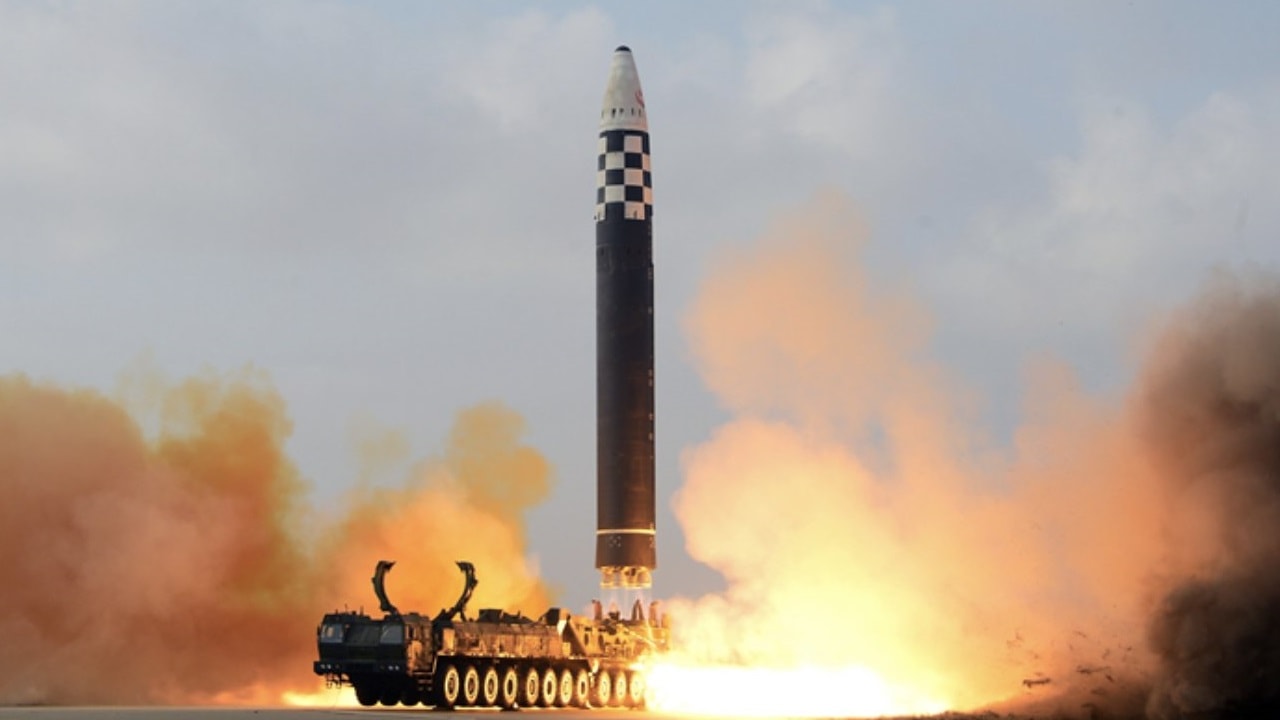Why Arms Control and North Korea Don’t Mix: Over at Responsible Statecraft, a publication run by the Quincy Institute, I make the case that America’s approach toward North Korea’s nuclear weapons program is utter garbage and needs to end. The time for calling for complete nuclear rollback – or what we call denuclearization – is about fifteen years past its expiration date and the time for some sort of arms control with Pyongyang is here.
As I explained in the article:
North Korea’s nuclear program has reached a massive industrial scale, comprised of thousands of scientists, workers, and facilities with a knowledge base and know-how that would be impossible to erase. Meanwhile, various options for arms control and threat reduction have been floated for years, whereby North Korea would get sanctions relief for a level of caps, controls, or limits on its nuclear weapons and missile programs. While it would be politically impossible to admit that the quest for denuclearization is a false one, a long-term road map could be created for a scaled-back DPRK nuclear and missile program in exchange for sanctions relief that would be implemented over a decade.
A first step would be to trade some sort of sanctions rollback — the permitting of textile exports worth hundreds of millions of dollars — for a permanent ban on North Korean missile testing in the medium-to-ICBM range. That would limit Pyongyang’s ability to develop weapons that can hit U.S. bases in Asia and the homeland. If North Korea honored that commitment for 90 days, another small agreement could be reached whereby if the Kim family scrapped its submarine-based nuclear deterrent program, another section of the sanctions regimen could be removed.
The challenge, of course, is politics.
Whoever in Washington makes the courageous decision to dump denuclearization for arms control will be called every appeasement-style name in the book and will be blamed for what amounts to recognizing North Korea as a nuclear weapons state.
While clearly, North Korea is a nuclear-weapons state, the politics of admitting what is true have no upside at all.
There is no way, for example, that the Biden Administration would ever consider trying to lessen the threat posed by North Korea through arms control as they know it would be held against them by hawkish Republicans and Democrats who would object to such a policy change. And no one in DC gives their enemy a clear line of attack unless they are going to get something out of it.
With North Korea in no mood to deal on any issues, collective Washington is quite content to stick its head in the sand on this issue for the foreseeable future. Sadly that means North Korea will keep building more and more nuclear weapons and missiles. I will not be shocked if we wake up one day to reports shortly that North Korea tested an ICBM where it proved its heat-shield technology works, proving its nuclear warheads can survive atomospheric reentry. And, of course, it seems like a nuclear test is coming soon.
One Senior National Security Offical who worked in the Trump Administration told me when he read my article: “The idea of arms control with North Korea is the correct idea as we have no way to compel them to completely give up their nuclear weapons now – that ship has sailed. But how does one not take on political damage by doing it? That is the challenge in all of this, and I see no way in the near term to solve that problem.”
I agree. But, I would say that at some point, this is the only logical course of action, especially if China is going to be America’s top national security challenge in Asia for decades to come. North Korea is small potatoes, comparatively speaking.
Expert Biography: Harry J. Kazianis (@Grecianformula) serves as President and CEO of Rogue States Project, a bipartisan national security think tank. He has held senior positions at the Center for the National Interest, the Heritage Foundation, the Potomac Foundation, and Pacific Forum. Kazianis has also worked as a defense journalist, serving as Editor-In-Chief of the Diplomat and Executive Editor of The National Interest. His ideas have been published in the New York Times, Washington Post, Wall Street Journal, Newsweek, CNN, CNBC, and many other outlets across the political spectrum. He holds a graduate degree focusing on International Relations from Harvard University and is the author of the book The Tao of A2/AD, a study of Chinese military modernization.

